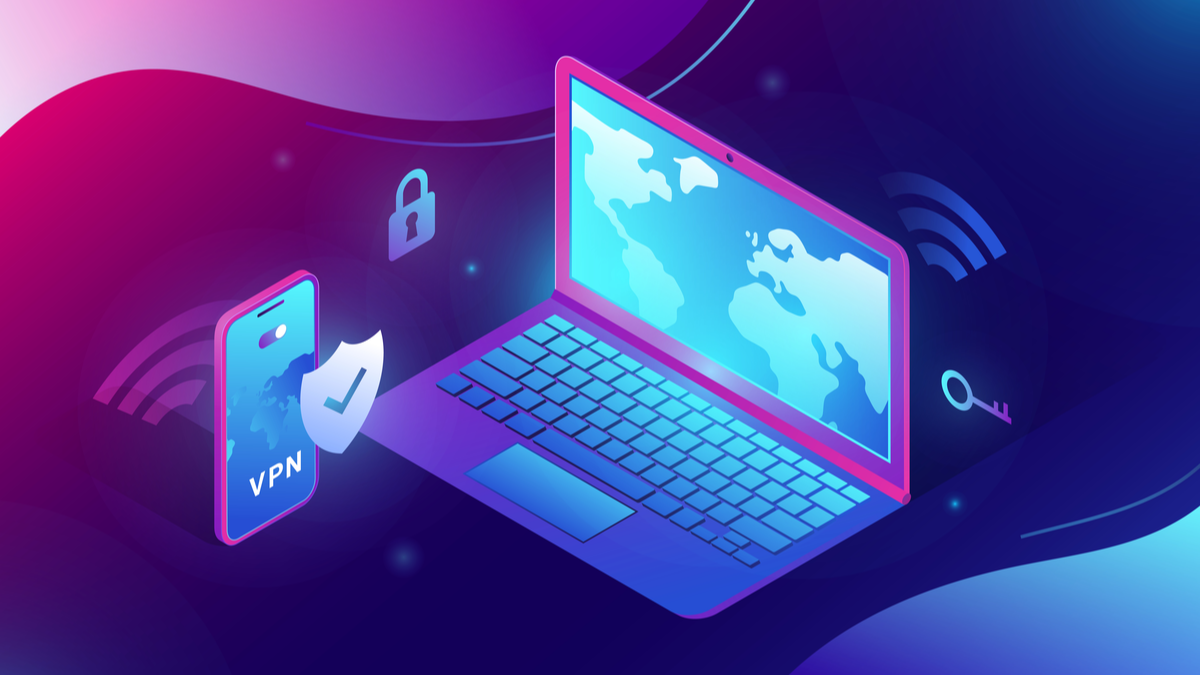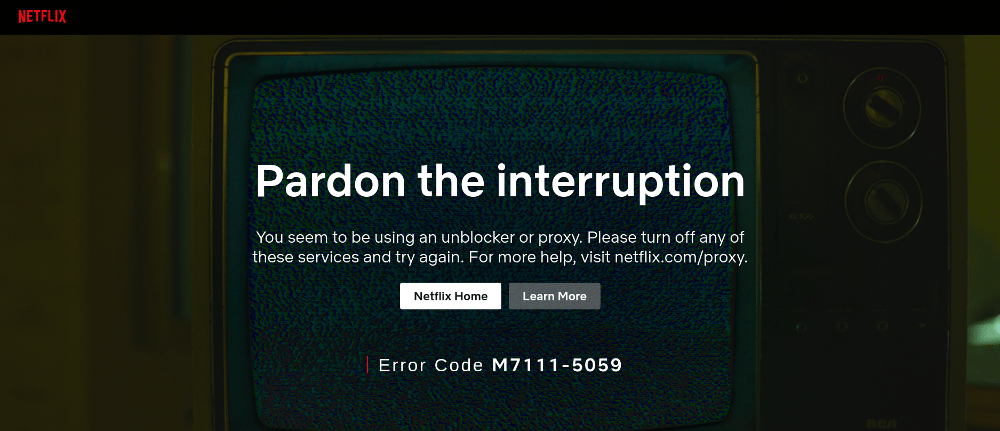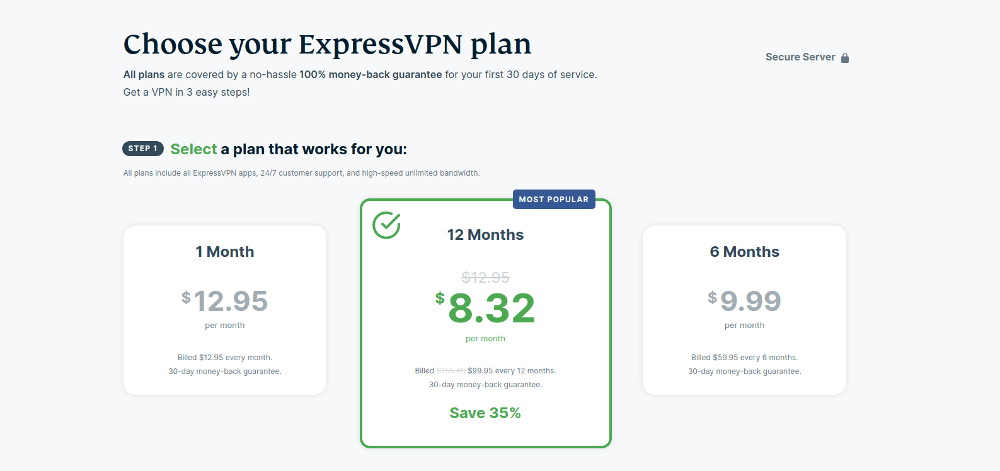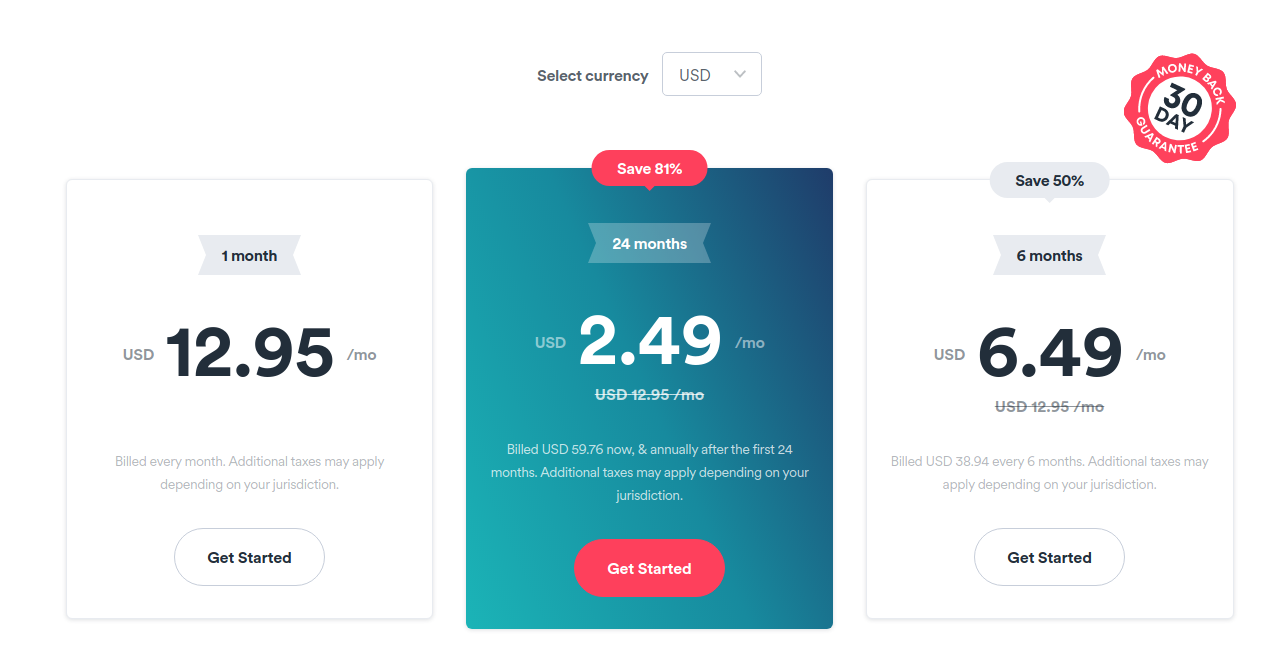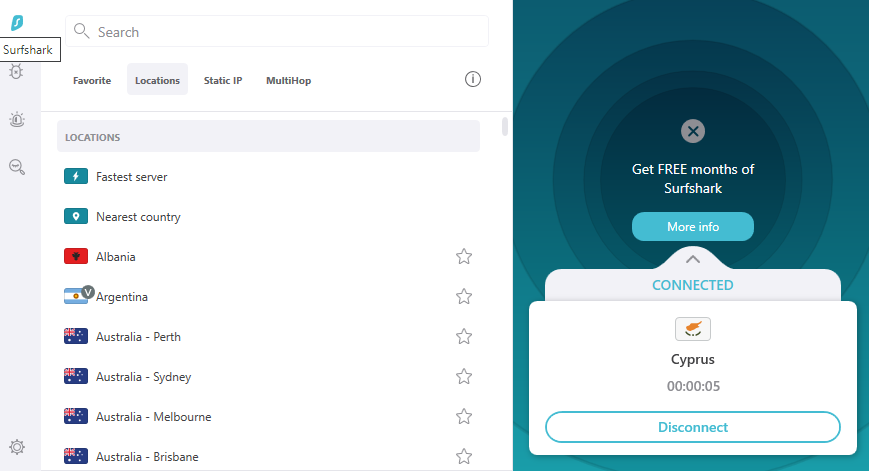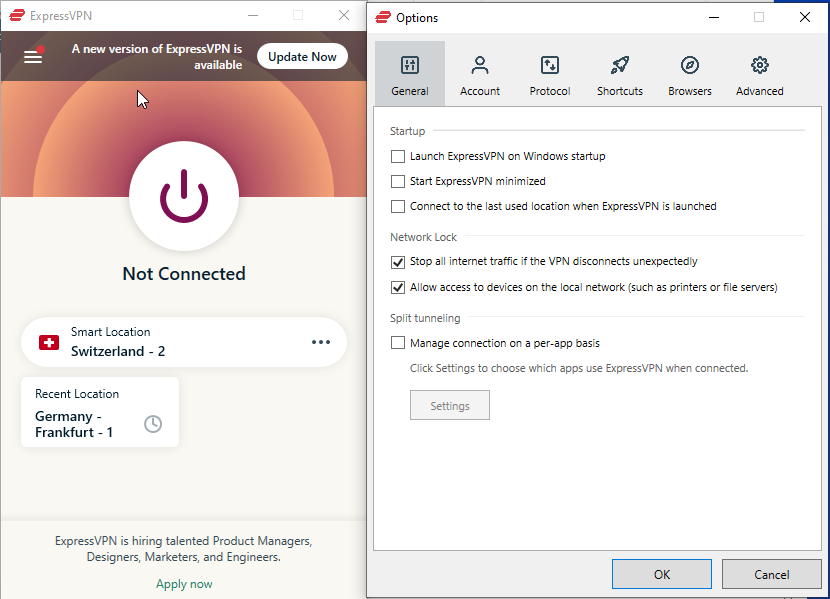Quick Links
If you're trying to choose the best VPN service for you, you might end up comparing Surfshark and ExpressVPN. These are two of the most popular VPN services out there. We'll compare their strengths and weaknesses.
Which Is Better for Privacy?
Let's address the elephant in the room: In 2021, ExpressVPN was acquired by Kape Technologies, a conglomerate that owns several other VPNs as well as VPN review sites. Kape has a history that seems opposed to privacy: Its founders made their original fortune through ad injection and also have ties to the Israeli intelligence community. The company has distanced itself from all of this, however, in several statements.
How this all affects ExpressVPN customers remains to be seen. On the one hand, ExpressVPN has pledged that this in no way influences the way it handles customer details. None of Kape's other acquired VPNs have reported issues in the past, either. Of course, it's very hard to detect privacy abuses with VPNs. Choosing a trustworthy VPN is essential.
That said, ExpressVPN's privacy policy is a solid document that throws up very few red flags. If ExpressVPN poses a risk to users' privacy, it's nothing that can be pointed at directly.
Still, though, Surfshark for its part, has no history of privacy issues, and no suspicious owners, either. Its privacy policy is a solid document that doesn't raise any eyebrows, or at least not too high. If privacy is your overriding concern, Surfshark may be the best choice here.
Surfshark vs. ExpressVPN Features
With that out of the way, let's take a look at what the two services can do. Overall, we're a little more impressed by ExpressVPN than Surfshark here. Much like in our Surfshark vs. NordVPN face-off comparison, Surfshark just doesn't have the oomph to dethrone one of the best VPNs on the market today.
This is because ExpressVPN not only has more features, it also performs them a lot better. One very good example is ExpressVPN's ability to get past the Netflix VPN ban.
Netflix and Torrenting
When it comes to streaming and Netflix in particular, there's really no contest: ExpressVPN takes the prize here, no doubt about it. Though Surfshark tries to get through to Netflix, we have had no luck at all and hit the proxy error time and again.
ExpressVPN does a lot better, despite a crackdown by Netflix on VPN users in 2021. Although it has become harder to find a server that works with Netflix, all you need is some perseverance and you should, eventually, get through, especially if you want Netflix's US library.
If you prefer your entertainment to come for free, you'll be happy to know that both services allow for torrenting on all their servers. Surfshark used to offer specialized servers for peer-to-peer traffic, but seemingly allows it on all of them now.
Speed
ExpressVPN also rules the roost when it comes to speeds. Although Surfshark isn't bad, it doesn't get better than average here, while ExpressVPN proves the truth in its name. When we test the speeds Surfshark's servers offer, we consistently see middle-of-the-road speeds. It's not terrible, but it's not great, either.
In contrast, every test we run with ExpressVPN is just good: even when connecting to a server halfway across the world we only see a decrease of roughly 50 percent. When we stay closer to home, this loss can be as low as 10 or 20 percent. So far, no other VPN can beat ExpressVPN; for another example read our NordVPN vs ExpressVPN article.
Server Count and Censorship
If you're looking for a server in a specific country, both services may be worth looking into. ExpressVPN offers around 3,000 servers in over 90 countries---some of them exotic locations like Kyrgyzstan---while Surfshark has 3,200 servers in about 65 countries, most of them in Europe and North America.
There's a lot of overlap between the two server lists (here are ExpressVPN's and Surfshark's official lists), as you can imagine. Overall, ExpressVPN seems to be the better pick if you need someplace out of the way---like Kyrgyzstan---while Surfshark has servers in some unexpected places like the United Arab Emirates and the Russian Federation---where VPNs aren't always legal.
Speaking of censorship, Surfshark's offers something it calls NoBorders mode which is supposed to kick in automatically when you're on a censored network and allow you to safely surf the web from outside repressive countries like the UAE or China.
While we like any VPN that takes a stance against these practices, we're not sure NoBorders mode is anything special. As far as we can tell, the secret to avoiding notice by the censors and evading their blocks is to use a solid VPN, special modes notwithstanding. We see no reason why Surfshark's regular servers can't do the job, especially when ExpressVPN seems to have no issues with it.
Security Features
That does bring us to something interesting, though: The security features both services offer. At first glance, both seem to have the basics you need, including secure servers and a kill switch.
Look a little closer, however, and a glaring issue rears its head: the VPN protocol each service defaults to. ExpressVPN favors its proprietary protocol Lightway, which offers both speed and security, while Surfshark prefers IKEv2/IPsec. This protocol is very fast---which begs the question of why Surfshark still manages to be a bit slow---but it also has some security flaws.
In both cases, you can simply change the protocol your VPN connection runs under---we recommend OpenVPN for Surfshark, and we also recommend OpenVPN if you have any issues with Lightway in ExpressVPN---we're going to dock Surfshark a few points here for defaulting to a protocol that is regarded as being less than stellar.
Price
Just looking at the features of our two contenders, it may seem like ExpressVPN is the logical choice. Things get more complicated when you look at how much ExpressVPN costs. While ExpressVPN boasts some impressive features, it also rocks a very hefty price tag, costing almost $100 per year. That's a lot of money for a VPN, and the extra three months you get at signup barely soften the blow.
On the other hand, Surfshark is less than $60 for the first two years, and then every year after that. You can't argue with that kind of money, especially if you don't care too much about Netflix and mainly need a VPN to protect yourself while browsing. Surfshark wins this round hands down.
Whichever you end up going with, both ExpressVPN and Surfshark offer a 30-day money-back guarantee on all plans, so you're not taking a risk if you want to take either of them for a spin to see which you prefer.
Ease of Use
When it comes to user-friendliness, we can't really decide on a clear winner. In both cases, you get a very simple interface. Surfshark has a big button on the right, a list of servers on the left, and that's pretty much it. It's great, and we like the simplicity and overall lack of bells and whistles.
ExpressVPN manages somehow to be even simpler: it's pretty much just one big button on the screen, with a few simple controls for servers and the like below it. In either case, you don't need an advanced degree to operate these VPNs.
However, when operating the settings screen, we're going to give a small---and we mean tiny---preference to ExpressVPN. Where Surfshark offers a decent amount of options for you to tweak to your heart's content, ExpressVPN simply offers more.
For example, ExpressVPN lets you set up split tunneling, customize your kill switch settings, and adjust a few other small preferences. Although these tweaks won't be useful for everybody---or even just a minority of users---they're enough to give this round to ExpressVPN, even if just by a hair.
The Verdict
In many ways, ExpressVPN is the better VPN, by far. It's more secure out of the gate, gets into Netflix, and is a lot faster. There are, however, two issues to contend with. The first is its much higher price: Surfshark is a lot cheaper and thus a much better choice for people on a budget. You can't argue with that big a price difference, especially not if you're looking for a VPN on a budget.
The second issue concerns privacy and whether or not you trust ExpressVPN after its acquisition by Kape Technologies. While on the one hand there is a lot of history there, it could very well be that ExpressVPN will continue to be run independently within a conglomerate that is now running things by the rules, as ExpressVPN claims.
As long as that remains up in the air, we feel ExpressVPN is probably the better choice overall. It can do more and does it faster than Surfshark does. If, however, you want to play it safe, then Surfshark may be the better choice. If neither sounds right for you, there are lots of other great VPNs to choose from.

